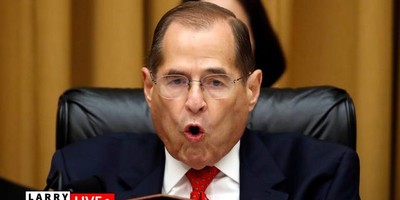Editor's note: This piece was authored by Benjamin Ayanian.
While some congressional testimonies are just an opportunity for partisans to score political points, there are other testimonies that are worth taking seriously. OpenAI CEO and ChatGPT creator Sam Altman’s recent testimony to the Senate Judiciary Subcommittee on Privacy, Technology, and the Law was one worth attention. Our politicians invited a leader in Artificial Intelligence (AI) to instruct them on how to regulate his company’s industry.
Despite Altman’s insistence that regulation is urgently needed, members of Congress must not let fear of this developing technology push them into overregulating AI and handing Altman regulations that would benefit his company to the detriment of the industry and consumers.
In his testimony, Altman emphasized the potential dangers of AI, calling for licensing requirements for AI developers and advocating for a regulatory body akin to the Nuclear Regulatory Commission (NRC). Altman says he is concerned that AI could, for example, cause significant job losses or majorly contribute to the spread of misinformation.
These concerns do not justify a rush to regulate AI. After all, humans are incredibly bad at predicting the effects of technological development on joblessness, often forecasting doom and gloom that never comes to fruition as technology continuously proves to be a powerful job creator. And misinformation can already be found on social media, in mainstream news, and coming from the government itself. Congress cannot save Americans from misinformation by regulating AI.
The more likely reason for OpenAI’s interest in new regulations is that strict rules would increase barriers to competition. Companies typically prefer fewer regulations regarding their activities, but when companies are large and powerful, they have a proclivity to ask for new regulations that introduce costs that their current and potential competitors would have trouble taking on. Not only does this generally protect them from competition; their lobbying activities often allow them to play a significant role in shaping the new regulations, ensuring the rules will further their interests.
Recommended
Senator Dick Durbin (D-IL) complimentarily described OpenAI’s pleas for Congress to regulate its own industry as “historic.” But there is nothing historic about major companies pleading to be regulated. It is common behavior.
In 2021, Facebook famously launched an ad campaign calling for more regulation of social media, as they were tired of the responsibility that comes with deciding how to moderate content. Conveniently, Facebook would be able to absorb increased compliance costs and legal fees resulting from stricter regulation, but such costs could crush start-ups and prevent other potential competitors from ever entering the market. Furthermore, standardized speech rules would have eliminated major distinguishing features of many online platforms, advantaging Facebook, as it boasts a larger network than most.
Amazon, another recent example, has lobbied for a $15/hour minimum wage since 2018 when the company raised its internal minimum wage to at least $15/hour. A larger wage requirement would not affect them but would increase costs for their competitors.
Regulation is often a weapon wielded by big businesses against their competitors.
In the case of OpenAI, a licensing requirement for AI developers would impose burdensome compliance costs and add a barrier to entry for potential AI developers, shielding them from competition. Ultimately, an AI regulatory office modeled after the NRC would slow innovation in the industry and delay the benefits consumers could receive from this revolutionary technology – just as the NRC has done with nuclear energy.
Unfortunately, at the moment, some in Congress seem ready to hand Altman the keys to regulating AI. In fact, when Altman recommended a regulatory body be established to create rules for licensing, Senator John Kennedy (R-LA) asked if Altman would be qualified to run the very agency that would be set up to regulate his industry.
Congress should know better than to hand the reins of regulation over to large companies. Competition forces companies to innovate, improve their existing products, and bring down prices. It expands consumer choice and is an indispensable part of progress. Congress should not let fear or pleas for regulation from an industry leader cause it to hamstring the forces of competition in AI just as the technology is beginning to blossom. Impetuous regulation would weigh on innovation, restrict consumer choice, and do little to improve safety.
Benjamin Ayanian is a contributor and Innovation Fellow at Young Voices, an organization for young, pro-liberty commentators. He has been published in Newsweek, the Star Tribune, Yahoo News, and more. His Twitter is @BenjaminAyanian.

























Join the conversation as a VIP Member